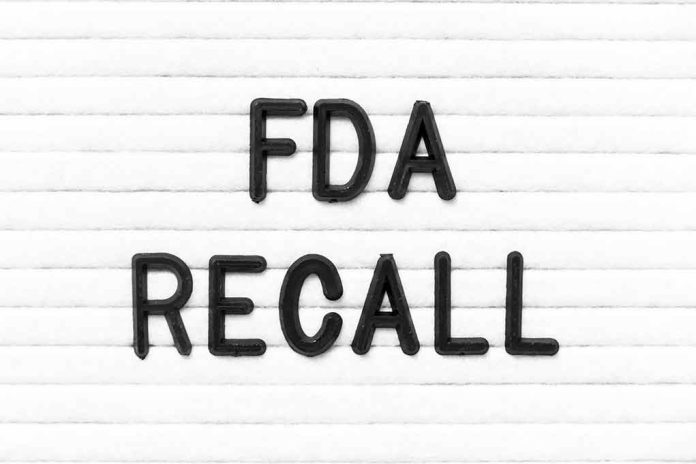
P. East Trading Corp. has recalled potentially deadly Salted Smoked Split Herring from stores across the Northeast after state regulators discovered the fish were not properly eviscerated, creating ideal conditions for botulism toxin development.
Key Takeaways
- Salted Smoked Split Herring products have been recalled across Connecticut, New Jersey, and New York due to risk of deadly botulism poisoning
- The fish were improperly processed without removing internal organs, creating perfect conditions for deadly Clostridium botulinum bacteria to thrive
- The recall was initiated after a New York State Department of Agriculture and Markets inspection found regulatory violations
- Affected products were sold in 18-pound wooden boxes with container code Lot 1 PRC5073 and may have been repackaged at retail level
- No illnesses have been reported, but consumers should return products for a full refund
Dangerous Bacteria Found in Improperly Processed Fish
The Food and Drug Administration has announced that P. East Trading Corp. is recalling Salted Smoked Split Herring products after state inspectors discovered serious processing violations. The fish, which were distributed across Connecticut, New Jersey, and New York, tested positive for conditions that could allow the deadly Clostridium botulinum bacteria to flourish. This dangerous oversight in food processing highlights the ongoing battle against lax food safety standards that continue to put American consumers at risk despite rigorous regulations that should prevent such failures.
“Herring was not properly eviscerated prior to processing,” New York State Department of Agriculture and Markets Food Inspector.
Botulism: A Potentially Fatal Food Poisoning
The FDA has emphasized that botulism poisoning presents a serious health risk to consumers. This potentially fatal form of food poisoning can cause symptoms including general weakness, dizziness, double vision, difficulty speaking or swallowing, and respiratory paralysis that can lead to death. The toxin produced by Clostridium botulinum is particularly concerning in these herring products because the fish were not properly gutted before processing – a fundamental safety procedure. The FDA noted that toxin spores “are more likely to be concentrated in the viscera than any other portion of the fish,” stated FDA
“As they are more likely to be concentrated in the viscera than any other portion of the fish,” stated FDA.
Identifying Affected Products
The recalled fish were manufactured by Sea Star Seafood Ltd in Canada and distributed by P. East Trading Corp. They were sold in 18-pound wooden boxes with the container code Lot 1 PRC5073. However, consumers should be particularly vigilant as the FDA has warned that these products may have been repackaged at the retail level into smaller containers. This repackaging could make contaminated products more difficult to identify for unsuspecting shoppers who may not connect their purchases with the recall announcement.
“deli-style or other retail packaging,” stated FDA.
Regulatory Response and Consumer Actions
The recall was initiated following a routine inspection by the New York State Department of Agriculture and Markets, which found that the herring products over 5 inches in length were not properly eviscerated as required by regulations. While no illnesses have been reported to date, the FDA is taking no chances with this potentially deadly contamination. Consumers who have purchased these products are urged not to eat them under any circumstances and to return them to the place of purchase for a full refund. Those with questions can contact P. East Trading Corp directly at (718) 991-6070 or by email at [email protected].
Pattern of Food Safety Failures
This recall highlights a troubling pattern of food safety failures that continue to plague American consumers. Despite having some of the world’s most advanced food safety regulations, implementation and enforcement gaps repeatedly allow potentially dangerous products to reach store shelves. The situation raises serious questions about inspection procedures for imported seafood products and the effectiveness of our current regulatory framework. This incident serves as yet another reminder that government agencies must remain vigilant in protecting American consumers from food safety threats, particularly those originating from foreign sources.





